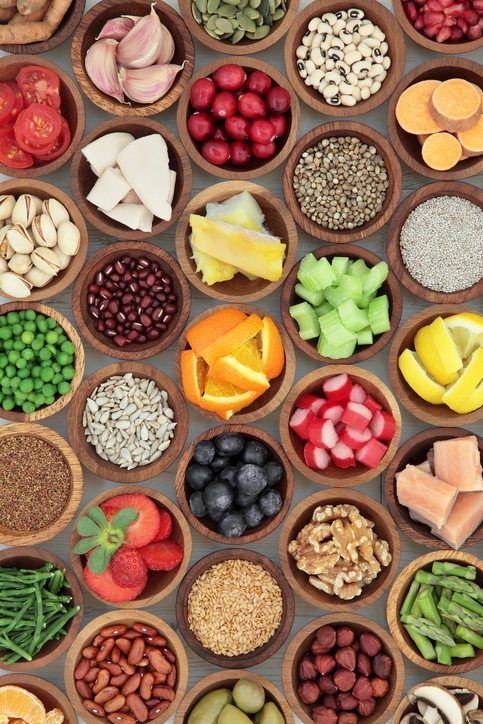
Too much sodium has many adverse effects. High sodium levels are closely linked to high blood pressure and the risk of hypertension and heart disease. Limiting salty snacks and reducing salt content in meals are two ways to lower sodium intake. You should also limit the intake of processed and fast foods. Listed below are some strategies for reducing sodium consumption:
Your water retention will increase if you have more sodium in your bloodstream. This causes blood vessels to expand, leading to more water retention. Over-saturated blood vessels stretch and build up plaque, making them susceptible to heart disease. You may also feel bloated from too much sodium. Too much sodium can cause serious health problems.

Too much sodium is bad for your health. Although your body requires a certain amount of sodium, consuming too much of it can lead to health problems. Studies have shown that sodium-rich diets can increase the risk of high bloodpressure. Although sodium is vital for nerve and muscle function, and to regulate body fluids it is best to reduce your intake. It's best to keep your daily intake below 2 000 mg.
Too much sodium can cause heart problems and brain damage. High sodium diets in the United States are associated with increased risk for developing cardiovascular disease. The Centers for Disease Control and Prevention recommend Americans should not consume more sodium than 1,500mg per day. For most people, this should be less than two thousand mg per day. However, there are foods with higher sodium levels than others.
It is important not to forget that excessive sodium can cause problems in your cardiovascular system. It may actually be beneficial for your health. A person with high blood pressure, for example, should reduce their sodium intake by 2,000 mg daily. A lower blood pressure is another benefit. Additionally, lowering salt intake can reduce your risk of developing cardiovascular disease. This is just one example. To reap the benefits of a healthy lifestyle you need to limit sodium.

Over-consumption of sodium continues to lead to more deaths. High sodium levels are increasing in people with high blood sugar and heart disease. Reducing sodium intake can help reduce your risk of developing cardiac problems. Salty foods should be avoided, along with processed and salty food. For instance, canned vegetables and legumes should be rinsed before consumption. If you don't like to wash your vegetables and legumes before consuming them, you can try rinsing them first.
FAQ
What is the purpose of milk for men?
Consider what other uses you might have for your milk next time that you buy it. You might also find it helpful to stop drinking coffee.
Milk has been proven to be beneficial to both children and adults alike. Milk provides children with nutrients such as vitamin D, calcium, potassium, phosphorous, and magnesium.
It aids in digestion, strengthens bones, and promotes weight loss. Dairy products are more beneficial for adults than any other food.
People who have difficulty digesting milk are also likely to be able to enjoy its many benefits, even if they do not have stomach problems.
Consider drinking more milk, instead of sodas or juices. Drinking milk with more calcium and vitamin A can help to strengthen your teeth.
If you don't like the taste of milk, you can always make your yogurt using plain low-fat milk. Yogurt has lower calories and is richer in protein than milk.
Yogurt also has probiotics that aid digestion and increase immunity.
Try warm milk to help you fall asleep. Warm milk can relax muscles and increase serotonin levels. This will help you sleep well.
Do I need to exercise every morning?
No! No! That could mean walking fast enough for you to get slightly out of breath and biking hard enough for you to sweat.
What Is The Best Way To Lose Weight?
Losing weight is easier said than done. Many people quit because they don’t know where to start.
You can lose weight by following a few simple steps.
First, ensure you eat fewer calories that you burn. If you eat more calories that you burn, you'll gain weight.
Second, you must start exercising regularly to burn off all those calories. You have the option of doing jogging or walking or cycling, as well as dancing.
Third, stop smoking and drinking alcohol. These habits will cause you more calories than normal.
Fourth, you need to cut back on fatty foods and junk food. You can replace these unhealthy foods with healthier choices like fruits, vegetables, lean proteins, whole grains and nuts, seeds and beans, as well as other healthy options such a legume, fruit, vegetable, legumes, whole grain, nuts, seeds, and beans.
Fifth, you need to change your lifestyle and adopt new habits. You might need to get up earlier every morning to do some exercise before going to work.
Sixth, be disciplined and stick to your diet plan.
Lastly, you can join a gym or attend an aerobics class to burn those excess calories.
These simple tips will help you quickly see results.
How many calories do I need to eat each day?
This varies from person to person. On average, 2000 to 2500 calories are consumed per day. You need to determine how many calories you need based on age, gender, height, weight, activity level, and lifestyle.
What diet supplement is best to lose weight?
Exercise and diet are key to losing weight. Some people find that certain supplements are helpful.
Many studies show that omega-3s may help you lose weight. Omega-3 fatty acids are essential fats that are vital for brain function, cell membrane integrity, and other functions. These fats are found in seafood such as salmon, tuna and shrimp.
Another study suggests that green-tea might help with weight loss. The antioxidants in green tea, catechins and other compounds may increase metabolism and promote weight loss.
Statistics
- Get free shipping and 25% off today. (healthline.com)
- By John Thompson Take a whopping 38% off a set of PowerBlock Pros. (menshealth.com)
- Candidates and applicants must pass all four tests at 70% (minimum level) to graduate from Basic Deputy U.S. Marshal (BDUSM) Training. (usmarshals.gov)
- The PRS enabled risk stratification for overall prostate cancer and lethal disease with a four-fold difference between men in the highest and lowest quartiles (HR, 4.32; 95% confidence interval [CI], 3.16-5.89). (pubmed.ncbi.nlm.nih.gov)
- According to the American Academy of Dermatology (AAD), men over 50 are at a heightened risk of developing it. (healthline.com)
External Links
How To
What should my diet look like before I start a workout?
In order to lose weight, you must eat fewer calories that you burn through exercise. You must also eat all of your nutrients.
This includes protein, carbohydrates, fats, and vitamins.
This is best done by eating smaller meals throughout each day, rather than three large meals.
You may not be as effective if there is too much hunger during your workouts.
Instead of drinking energy drinks that are high in sugar and caffeine, you could drink water. This helps keep you hydrated and energized.
You should ensure that you get enough fluids. Too much water can dilute your electrolytes.
For proper functioning, the body requires electrolytes.
Sports drinks are an option if you don't have water. They are high in potassium, sodium, calcium, magnesium and other minerals.
This helps replenish electrolytes that have been lost. They won't be able to replace the electrolytes you have lost through sweating.
A multivitamin pill can be taken if you worry about losing too much salt while exercising.
These supplements contain additional vitamin B6, which can help regulate your body's sodium levels.
Supplements shouldn't be used if you don’t know how much salt is in food and beverages.
They aren’t controlled by the Food and Drug Administration.
Sports drinks, for example, can have higher sodium levels than others.
Some sports drinks might contain artificial sweeteners, preservatives, or both. These can cause problems with the digestive system.
If you're concerned about salt intake, sea salt could be used.
It contains less chemicals than table sodium.
Sea salt also lacks iodine. This mineral is important for healthy thyroid function.